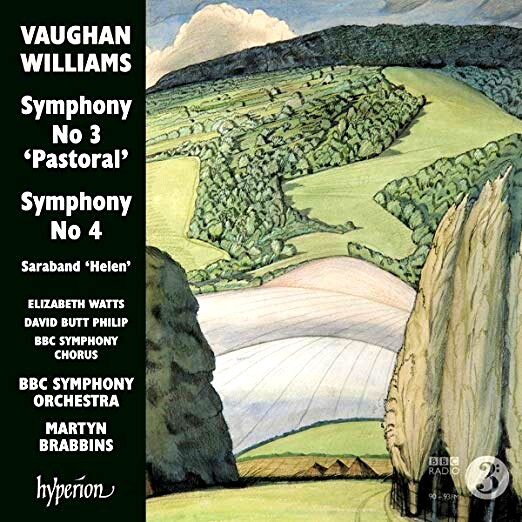

Whereas the Symphony No. 1 by Ralph Vaughan Williams (1872-1958) instantly sweeps you off your feet and takes you on an exciting journey on the high-seas of life itself, the more subdued Symphony No. 3 'Pastoral' from 1921 paints a more idyllic, peaceful and introverted picture. Oddly enough, it is said that it was not inspired directly by the English countryside but rather by his own experience during the First World War, driving back and forth through landscapes that looked like Corot paintings, during his ambulance duties. Which explains why it doesn't sound like a Beethoven 'Pastoral', which depicts nature as an obsequious pleasure existing solely for man's enjoyment. No one hears a tree fall in this Vaughan Williams forest as man is not present. Nature is unconcerned about the facetious and irresponsible activities of human beings. It lives on with nothing but the passing of time to bear influence on it. A Vaughan Williams 'Pastoral' is closer in spirit to an isolated Sibelius vista.
On the other hand, the Symphony No. 4 in F minor (1934) is a tormented, tense and apprehensive work, perhaps as a result to the escalating tensions in Europe at the time. Or maybe simply a reaction to critics dissing his previous symphony for being too suppressed and quiet. This symphony hits close to William Walton territory, most especially during the highly agitated Scherzo movement. But there lies the charm of his symphonies. All nine of his symphonies are highly distinct from one another, and each one just as powerful a listening experience as the next. Not bad for a composer who mentioned at the onset of his career that he had no intention to write symphonies.
As mentioned in my previous review of the First Symphony, conductor Martyn Brabbins always makes clearly apparent whichever spirit permeates the different emotive provenance of these orchestral works, and the musicians of the orchestra respond in kind. The inner eloquence of the music speaks for itself in this new Hyperion recording. So far this is a cycle definitely worth following.
Jean-Yves Duperron - January 2020